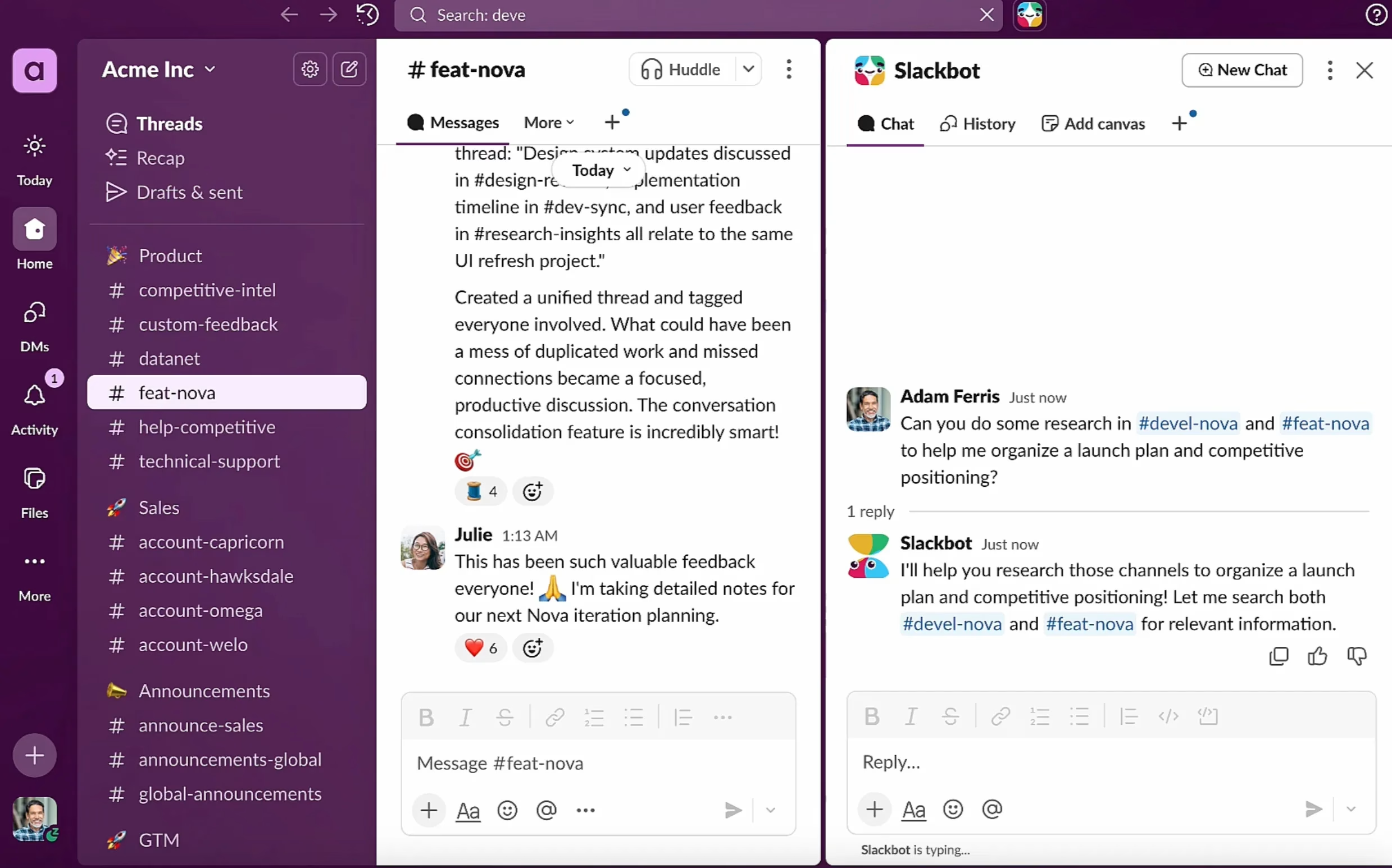Slackbot Transforms into AI Assistant: A Major Leap for Workplace Productivity
Notably, Slack is no longer content with its resident chatbot being a mere tool for reminders and automated responses. The company is, in fact, overhauling Slackbot, evolving it from a relatively rudimentary helper into a sophisticated, personalized AI assistant. This isn't just a minor update; we're talking about a ground-up rebuild, poised to significantly reshape how teams interact with their workspaces. It's a pretty big deal, especially for anyone who spends a good chunk of their day navigating myriad channels and conversations.
According to Rob Seaman, Slack's senior vice president of enterprise product, the transformation is about creating a "personalized AI companion." And honestly, that phrase perfectly encapsulates the ambition here. This isn't just about making Slackbot smarter; it's about making it indispensable.
The New Intelligence: What Can This AI Slackbot Do?
So, what exactly does this enhanced Slackbot bring to the table? The capabilities are a substantial upgrade from its current incarnation. Imagine having a digital assistant that can actually understand context and proactively help you manage your work.
For starters, the new Slackbot can craft custom plans specifically tailored to your workspace. Let's say you're organizing a product launch. Instead of manually pulling information from different channels, the AI-powered Slackbot can gather all relevant data, synthesize it, and even help structure a launch plan right inside a Slack Canvas. It can even assist in drafting a social media campaign, thoughtfully adapting to your brand's established tone. That's a huge time-saver right there.
But what really seems to be catching everyone's eye – and for good reason – is the natural language search functionality. How many times have you known a document exists but just couldn't remember the exact keywords used to share it? With the new Slackbot, you can simply ask, "Find me the document that Jay shared in our last meeting." It's like having an incredibly efficient librarian for your entire digital workspace. This ability to sift through a mountain of messages and files using plain English is, frankly, a game-changer. It leverages your conversations and shared files to provide truly personalized assistance.
Furthermore, this updated assistant integrates with your external tools, like Microsoft Outlook and Google Calendar. Need to coordinate a meeting? Slackbot can tap into colleagues' calendars, find optimal times, and schedule everything for you. This builds on other AI features Slack has already rolled out, such as summarizing lengthy threads and channels, and even decoding company-specific jargon. Seaman says they’ll keep adding these "little touches where they make sense, to save users a click," which is precisely what most busy professionals are looking for.
Privacy, Enterprise Adoption, and Rollout Timeline
An obvious question that arises with any AI tool processing sensitive workplace data is privacy. Slack seems to have anticipated this, and their solution offers a significant differentiator. The company states that its AI features, including the upgraded Slackbot, operate through Amazon Web Services' (AWS) virtual private cloud. This means, crucially, that "no data leaves the firewall, no data is used in the training of the models at all," as confirmed by Seaman. This enterprise-grade privacy approach is a pretty solid selling point, especially when compared to some consumer-grade AI models that might use user data for broader model training.
Currently, the upgraded Slackbot is in a pilot phase. Salesforce, Slack's parent company, has already deployed it to approximately 70,000 employees, using them as an initial proving ground. Interestingly, while companies can opt out of using the AI Slackbot for their entire workspace, individual employees within an opted-in workspace can't disable it. This underscores Slack's vision for this AI as a core, pervasive layer of the platform for enterprises.
The company is now expanding the pilot to other selected customers, refining the experience based on real-world feedback. For the broader user base, Slack plans to introduce this transformative feature to everyone by the end of the year. So, for many of us, the wait won't be much longer. This makes the competition in the workspace collaboration sphere even more interesting, putting pressure on rivals like Microsoft Teams and Zoom to continually innovate their own AI offerings.
The Broader Implications and What's Next
The evolution of Slackbot isn't just about adding new features; it's a strategic move to address fundamental challenges in modern work. "Information overload" is a real problem, and this AI assistant directly tackles it by making information retrieval and task management significantly more efficient. Early pilot data suggests substantial productivity gains, with some reports indicating users could save hours weekly by reducing "context switching" and tedious searches.
This shift positions Slack firmly in the AI-first future of workplace collaboration. The old Slackbot was reactive, responding to commands. The new one is intelligent, contextual, and proactive – evolving from a simple bot to a genuine "companion" that understands your daily workflow and helps you navigate it. It’s a move that could significantly enhance Slack's stickiness within enterprises, making it even harder for users to imagine working without it.
What's next? We can expect Slack to continue integrating AI capabilities, not just within Slackbot, but across the entire platform. The goal is clear: to create an even more seamless and intelligent user experience. The secure, enterprise-focused approach to AI, particularly the commitment to data privacy within a virtual private cloud, is likely to remain a cornerstone of their strategy. It’s a compelling vision for how AI can genuinely empower knowledge workers, isn't it?
